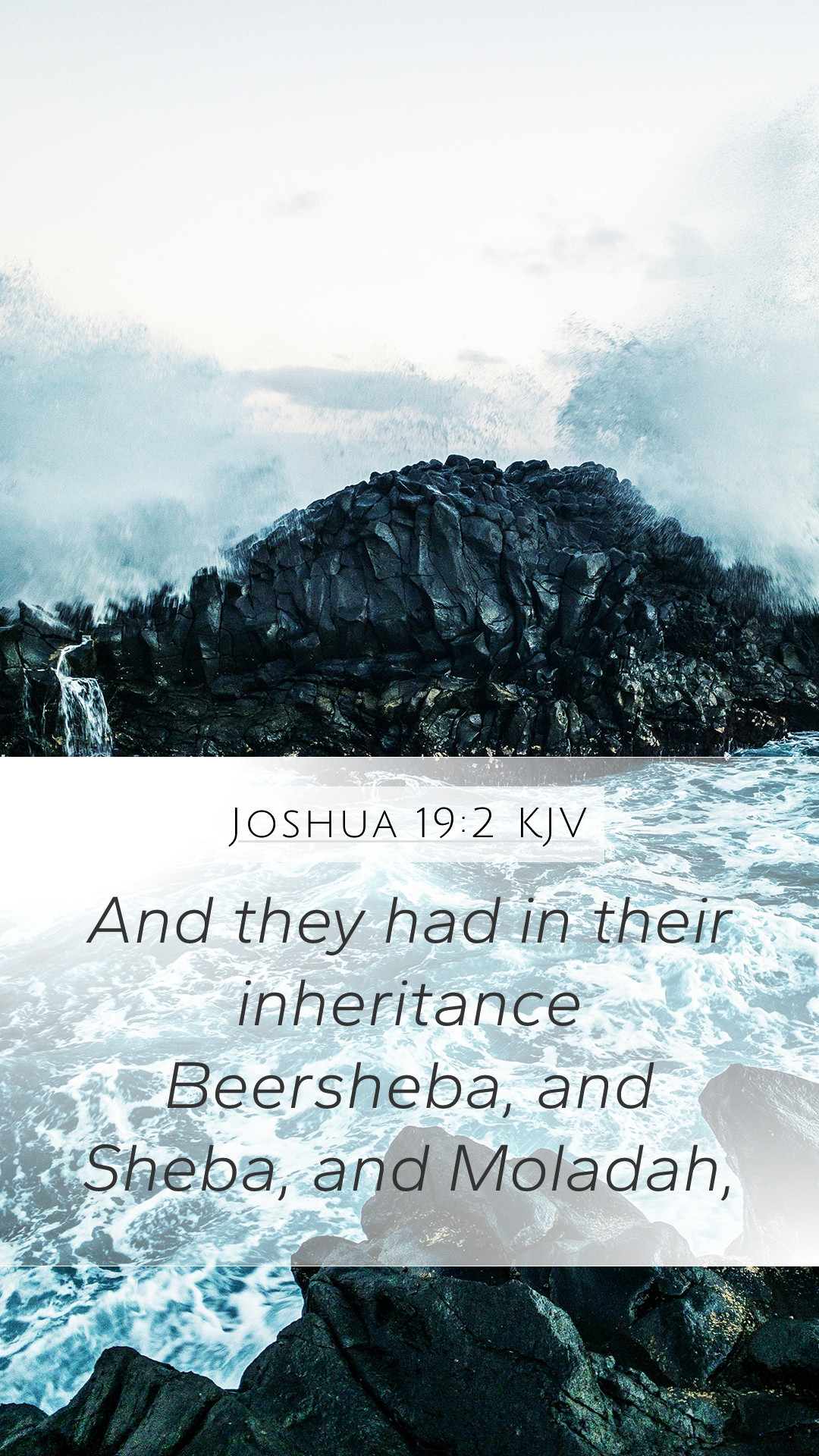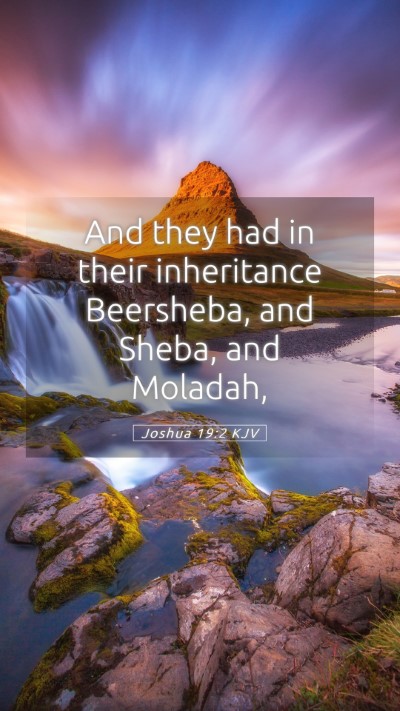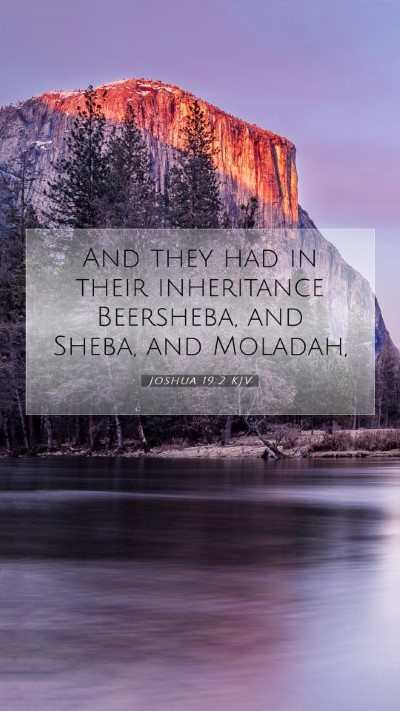Bible Verse Explanation: Joshua 19:2
The verse Joshua 19:2 states:
"And they had in their inheritance Beersheba, and Sheba, and Moladah."
In this verse, the inheritance of the tribe of Simeon during the division of land among the twelve tribes of Israel is outlined. To understand the significance of this verse, we draw insights from public domain commentaries.
Meaning and Context
This passage is situated within the broader narrative of the Israelites' settlement in Canaan following their exodus from Egypt. The verse highlights specific locations assigned to the tribe of Simeon, which is pivotal in grasping the geography and sociopolitical climate of ancient Israel.
Commentary Insights
-
Matthew Henry:
Henry draws attention to the importance of the cities mentioned and their relevance to the tribe of Simeon. He notes that these locations reflect both the historical reality and the providential order of God, illustrating how each tribe received lands suited for their growth and sustenance.
-
Albert Barnes:
Barnes emphasizes that the inheritance marked both a fulfillment of God's promises to the patriarchs and a reminder of the faithfulness of God in providing for His people. He also mentions the significance of the territories in relation to trade and agriculture in the region.
-
Adam Clarke:
Clarke highlights that the specificity in naming locations serves not just historical or geographical purposes, but also spiritual. He remarks on the symbolic aspect of these inheritances, where each city represents various facets of divine provision and faithfulness in fulfilling promises to the tribes of Israel.
Understanding the Names of the Cities
The cities mentioned in Joshua 19:2—Beersheba, Sheba, and Moladah—each carry unique meanings and historical significance:
-
Beersheba:
Translating to "well of the oath," Beersheba is historically significant as a site of covenant between Abraham and Abimelech, representing peace and God's promises.
-
Sheba:
Sheba signifies “seven” or “oath.” This name adds layers of meaning regarding completeness and divine commitments within biblical narrative.
-
Moladah:
The etymology of Moladah relates to “birth,” perhaps signifying new beginnings or the preparation of a new generation within the tribe of Simeon.
Application of This Verse
Readers seeking Bible verse meanings can gain insight into present-day applications by understanding the importance of heritage and identity in spiritual life. Just as Simeon received specific lands, Christians also receive a spiritual inheritance through faith in Jesus Christ.
Lessons for Today
- The importance of knowing one's spiritual heritage.
- God’s faithfulness to fulfill His promises.
- Understanding that every believer has a role and place in God’s kingdom.
Additional References
For a more comprehensive understanding of Joshua 19:2, consider also these related Bible cross-references:
- Genesis 21:31 – The significance of Beersheba.
- Joshua 15:28 – The boundaries of the tribes of Judah bordering Simeon.
- 1 Chronicles 4:27 – The lineage and territorial allotment of Simeon's descendants.
Conclusion
In conclusion, Joshua 19:2 presents a rich historical and spiritual narrative concerning the inheritance of the tribe of Simeon. Through scholarly insights and contextual analysis, we gather significant biblical exegesis that aids in Bible study insights, helping to frame the understanding of Scripture for both individual reflection and group discussion in Bible study groups.
This examination encourages deeper thinking on how historical passages can be applied to modern Christian life, enhancing one’s grasp of Bible verse interpretations and reinforcing the faithfulness of God throughout generations.


